There are people we encounter in daily life and often take for granted. They include salesclerks and cashiers in grocery stores, retail stores, other shops, ice cream scoopers, nurses, PA’s, nurses aids, custodians, medical techs, doctors, waiters, waitresses, people in neighboring seats at a venue, children (a special favorite), traffic cops halting traffic for pedestrians at festivals or venues and one of my favorites? guards in museums and art galleries. These people are there to help us, to serve us and need to be noticed as more than two feet on the floor. I enjoy engaging them in conversations when feasible to inquire about their stories. They often open up and answer my inquiry with enthusiasm stopping to help other patrons.
1, three recent encounters; a clerk in a grocery store, young woman from Venezuela whose family emigrated to the US several years ago when she was about 12. They walked through every kind of weather and crossed the Treacherous Darian Gap. entering through Mexico and the southern border with her younger sister, mom and dad and an elderly and ill grandmother, but miraculously making it through all of the other hardships en route.
2. Museum guards, I talk to museum guards. They fade into the walls of a museum or art gallery, watching, waiting. They caution people if they are too close to a work of art, are crossing the viewing line and are mostly ignored by the patrons Their feet hurt, their legs hurt, their backs hurt. Some may change location every couple of hours. They work long hours with short breaks and are highly knowledgeable about the displays, historical factors and exhibits. The most frequent questions they handle are “where are the bathrooms?” “or where is a specific exhibit?”
In speaking with them I learn so much more about the exhibits, individual pieces on display, the history of the building, the history of an artist or culture and learn about their families and birthplace as well as their stories as immigrants, becoming American citizens, or recent worry about deportation, education, applying for the job and being hired, level of training and degree of satisfaction on the job. They thank me for taking the time to converse with them and sharing my point of view of a particular work or tidbits of history about a display items.
Traffic Cops at crossroad or crowded venues. They help us cross the street safely, give directions when asked, and again are on their feet in all kinds of weather, small and large crowds, busy streets, school crossings, festivals, concerts and more. They too are ignored. If things are quiet, I thank them for their help, and in slow times, hear their stories. Again, many are immigrants sharing their hardships and joys, frightened for family members left behind, grateful for the America we used to know, worried about the America that they thought would be welcoming and free.
3. Medical aides, Librarians and more: nurses, doctors, PA’S, burned out by the long hours, long pay and again, ignored by many patients. They too are human beings with stories and tales to tell. They tell me that most people, probably in great pain, can be mean, harsh and demanding. Just a smile and a thank you would heal their angst. Many of them tell me of their families. Very often after a long shift in hospital, surgery, techs or office staff, they go home to serve as caregivers to ill family members, parents, relatives, children with special needs and manage to cook and play and sleep for their return to work. Of course, Covid results in fewer staff members burning out and looking for other work. Thanks to all of those wonderful folks. It is a joy to take time to notice them and ask about their stories. It results in smiles and hugs. And mention of other workers, library staff dealing with banned books, Universities and unrest, and the whole scope of governmental and illogical changes. Bring back our open and welcoming arms.
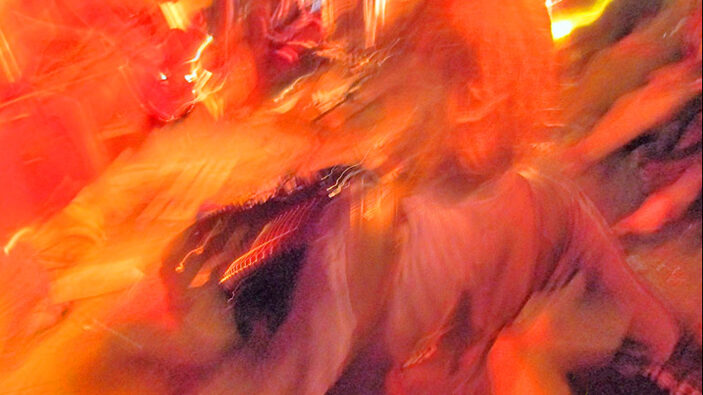
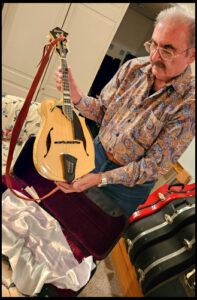
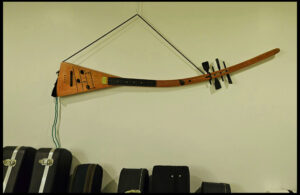
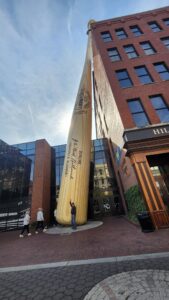
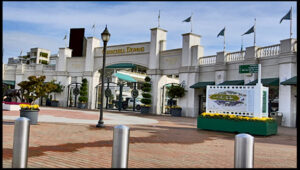
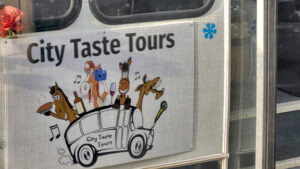
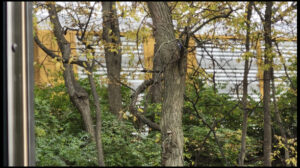
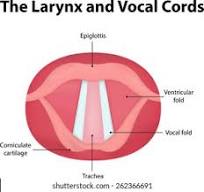
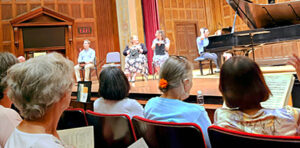 But on these evenings we are all equal. The conductors are guests or. faculty members of the Eastman School of Music. They are so talented, guiding us through the read-through rehearsal, after a wonderful warm up, stretching our bodies and vocalizing to wake up our voices, then a break followed by a full performance. My seat mates would share their stories as professionals and vocal cord trouble or demise. We would commiserate with each other, give it our all or mouth the words when encountering difficulty.
But on these evenings we are all equal. The conductors are guests or. faculty members of the Eastman School of Music. They are so talented, guiding us through the read-through rehearsal, after a wonderful warm up, stretching our bodies and vocalizing to wake up our voices, then a break followed by a full performance. My seat mates would share their stories as professionals and vocal cord trouble or demise. We would commiserate with each other, give it our all or mouth the words when encountering difficulty.